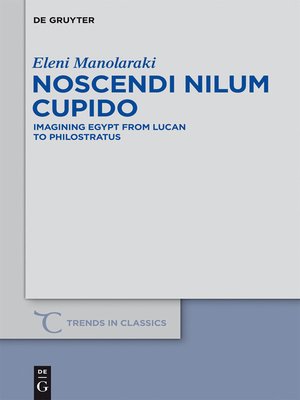Noscendi Nilum Cupido
ebook ∣ Imagining Egypt from Lucan to Philostratus · Trends in Classics--Supplementary Volumes
By Eleni Manolaraki

Sign up to save your library
With an OverDrive account, you can save your favorite libraries for at-a-glance information about availability. Find out more about OverDrive accounts.
Find this title in Libby, the library reading app by OverDrive.



Search for a digital library with this title
Title found at these libraries:
| Loading... |
What significations did Egypt have for the Romans a century after Actium and afterwards? How did Greek imperial authors respond to the Roman fascination with the Nile? This book explores Egypt's aftermath beyond the hostility of Augustan rhetoric, and Greek and Roman topoi of Egyptian "barbarism." Set against history and material culture, Julio-Claudian, Flavian, Antonine, and Severan authors reveal a multivalent Egypt that defines Rome's increasingly diffuse identity while remaining a tertium quid between Roman Selfhood and foreign Otherness.
Vespasian's Alexandrian uprising, his recognition of Egypt as his power basis, and his patronage of Isis re-conceptualize Egypt past the ideology of Augustan conquest. The imperialistic exhilaration and moral angst attending Rome's Flavian cosmopolitanism find an expressive means in the geographically and semantically nebulous Nile. The rapprochement with Egypt continues in the second and early third centuries. The "Hellenic" Antonines and the African-Syrian Severans expand perceptions of geography and identity within an increasingly decentralized and diverse empire. In the political and cultural discourses of this period, the capacious symbolics of Egypt validate the empire's religious and ethnic pluralism.






